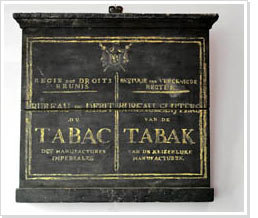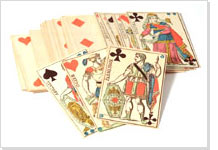The state treasury chest > Liberty, Equality and Fraternity the tax system in the Batavian-French times (1795-1814)
 The Batavian Republic was founded in 1795 by the Dutch Patriots with the support of the French armies. The slogan was Liberty, Equality and Fraternity, though always under the supervision of mighty France and Napoleon. The ‘independent’ republic was not to last long: in 1806, the Netherlands became a kingdom and four years later part of the French empire.
The Batavian Republic was founded in 1795 by the Dutch Patriots with the support of the French armies. The slogan was Liberty, Equality and Fraternity, though always under the supervision of mighty France and Napoleon. The ‘independent’ republic was not to last long: in 1806, the Netherlands became a kingdom and four years later part of the French empire.
In the turbulent Batavian-French years (1795-1813), the finances of all the provinces came under state control for the first time. Taxes too have been centralized from that time on. Many provincial and municipal rulers, often corrupt regents, made a hasty escape when the Patriots came to power in 1795. Those who stayed were expelled from office. Scrupulous civil servants, like the Grand Pensionary R.J. Schimmelpenninck, were to take over from them.
 Quite soon it appeared that it was, in fact, Napoleon Bonaparte who ran the show. In 1806, without any ado, he appointed his brother Louis King of the Netherlands. The Republic had ceased to exist.
Quite soon it appeared that it was, in fact, Napoleon Bonaparte who ran the show. In 1806, without any ado, he appointed his brother Louis King of the Netherlands. The Republic had ceased to exist.
Then, in 1810, displeased at his brother’s weak rule, Napoleon deposed Louis. From then on, the country was part of the French empire and was ruled out of France by the emperor. French tax and customs legislation came into force here as well.
< Previous period: 1579-1795 | Next period: 1814-1848>
Back to A short history of taxation.
